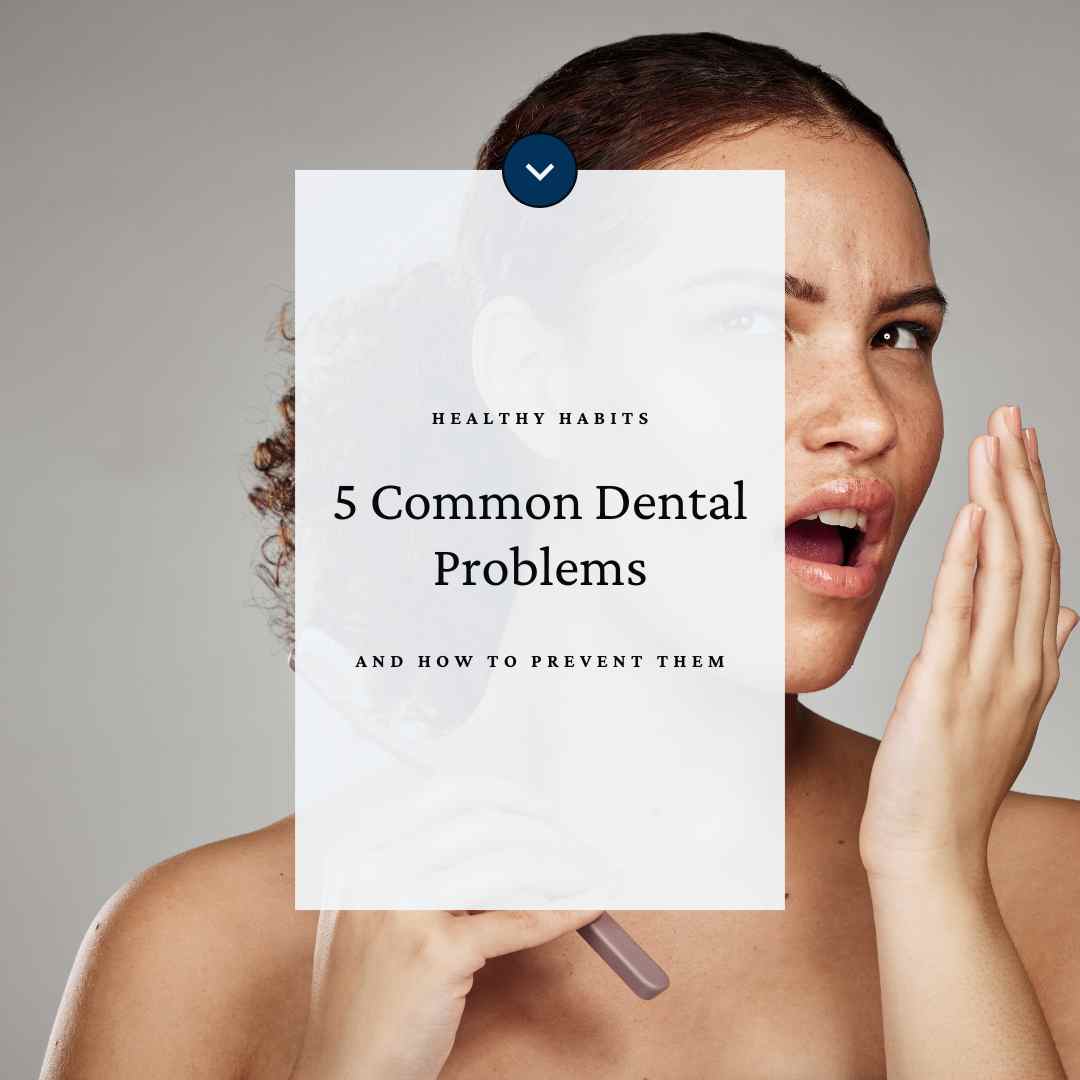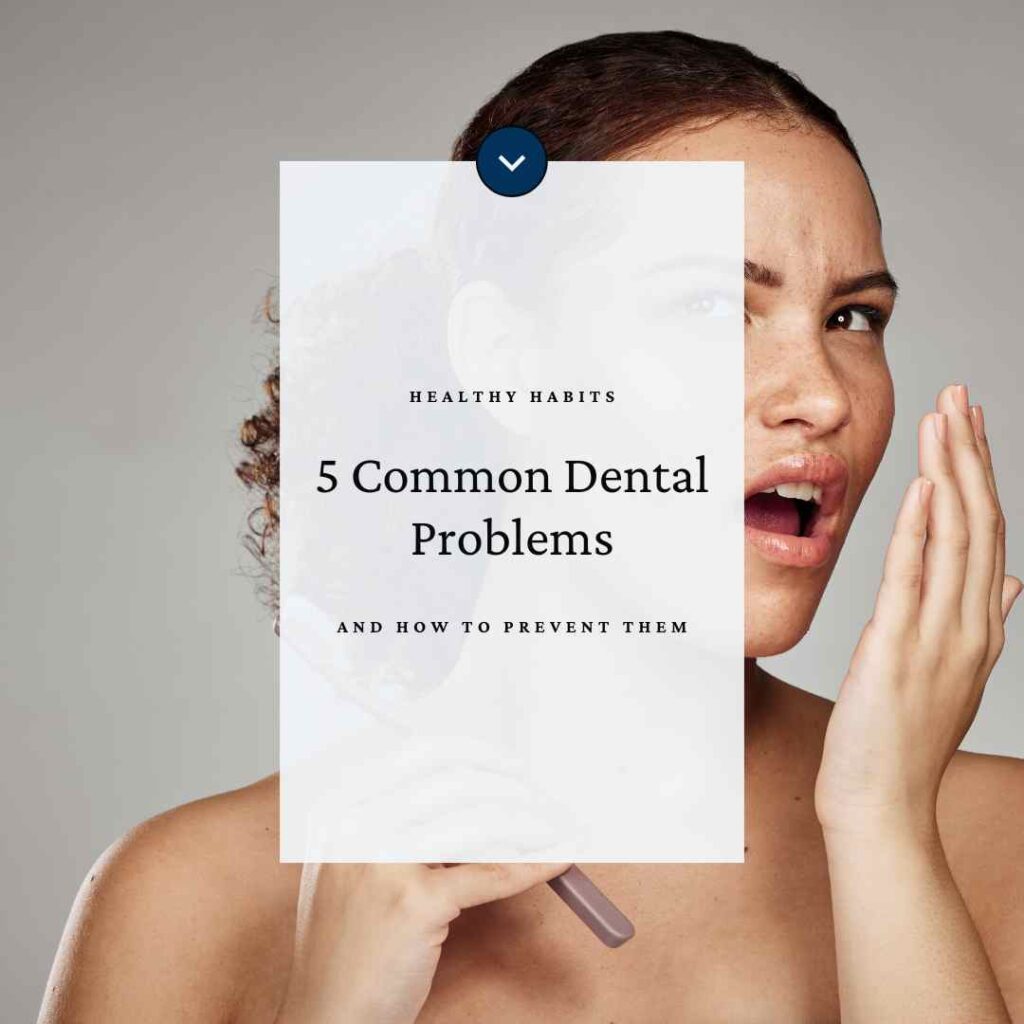5 Common Dental Problems and How to Prevent Them


Dental problems can be a source of discomfort and concern for many people. From tooth decay to gum disease, these issues not only affect oral health but can also impact overall well-being and confidence. Regular dental checkups and good dental hygiene habits play a crucial role in preventing and managing these common problems.
This article delves into five prevalent dental issues that many individuals face. It explores the causes and symptoms of tooth decay, gum disease, tooth sensitivity, bad breath, and tooth erosion. Moreover, it provides practical tips and strategies to help prevent these problems, empowering readers to take control of their oral health and maintain a healthy, confident smile.
Table of Contents
Tooth Decay
Tooth decay is a common dental problem that affects people of all ages. It occurs when bacteria in the mouth produce acid that attacks the tooth's surface, leading to the formation of cavities. Understanding the causes, symptoms, and prevention methods can help maintain good oral health.
Causes of tooth decay
The primary cause of tooth decay is the interaction between bacteria and sugars in the mouth. When plaque, a sticky film of bacteria, builds up on teeth, it feeds on sugars and starches from food and drinks. This process produces acid that erodes tooth enamel, creating tiny openings or holes [1]. Other factors contributing to tooth decay include poor oral hygiene, frequent snacking on sugary foods, and dry mouth conditions.
Symptoms of tooth decay
Early stages of tooth decay may not cause noticeable symptoms. However, as the condition progresses, individuals may experience:
- Tooth sensitivity to hot, cold, or sweet foods and drinks
- Toothache or pain when biting down
- Visible holes or pits in teeth
- Brown, black, or white staining on tooth surfaces
- Bad breath or an unpleasant taste in the mouth
Prevention tips for tooth decay
Preventing tooth decay involves maintaining good dental hygiene habits and making smart lifestyle choices. Some effective prevention strategies include:
- Brushing teeth twice daily with fluoride toothpaste
- Flossing or using interdental cleaners daily
- Limiting sugary and starchy foods and drinks
- Drinking fluoridated tap water
- Visiting the dentist regularly for checkups and cleanings
Gum Disease
Gum disease, also known as periodontal disease, is a common dental problem that affects many adults. It starts with the inflammation of the gums and can progress to more severe stages if left untreated. Understanding the types, signs, and prevention methods of gum disease is crucial for maintaining good oral health.
Types of gum disease
There are two main types of gum disease:
- Gingivitis: This is the earliest stage of gum disease. It causes inflammation and swelling of the gums due to plaque and bacteria buildup. Symptoms include redness, tenderness, and bleeding while brushing or flossing.
- Periodontitis: If gingivitis is left untreated, it can advance to periodontitis. This more severe form of gum disease involves infection and inflammation of the gums, as well as deterioration of the surrounding bone and connective tissues.
Signs of gum disease
Common signs of gum disease include:
- Red, swollen, or bleeding gums
- Persistent bad breath
- Receding gums
- Loose teeth or changes in bite
- Pain when chewing
Preventing gum disease
To prevent gum disease and maintain good dental hygiene:
- Brush teeth twice daily with fluoride toothpaste
- Floss daily to remove plaque between teeth
- Use an antibacterial mouthwash
- Visit the dentist regularly for checkups and cleanings
- Quit smoking and reduce stress
- Maintain a balanced diet
By following these preventive measures and being aware of the signs, you can significantly reduce your risk of developing gum disease and preserve your oral health.
Tooth Sensitivity
Image Source: American Association of Endodontists
Tooth sensitivity is a common dental problem that affects many people. It occurs when the protective layer of enamel wears down, exposing the underlying dentin. This exposure can lead to sharp, sudden pain when consuming hot, cold, sweet, or acidic foods and drinks.
Common causes of tooth sensitivity
Several factors can contribute to tooth sensitivity. Brushing too hard or using a hard-bristled toothbrush can wear down enamel over time. Gum recession, often caused by periodontal disease, exposes the tooth roots, leading to sensitivity. Tooth decay, cracked teeth, and teeth grinding (bruxism) can also cause sensitivity by damaging the tooth structure.
Managing tooth sensitivity
To manage tooth sensitivity, it's crucial to maintain good dental hygiene habits. Using a soft-bristled toothbrush and desensitizing toothpaste can help reduce discomfort. Limiting acidic foods and drinks in your diet can prevent further enamel erosion. For those who grind their teeth, wearing a mouthguard at night can protect against sensitivity.
When to see a dentist for sensitivity
If tooth sensitivity persists or becomes severe, it's important to consult a dentist. Prolonged sensitivity may indicate underlying dental problems that require professional treatment. A dentist can determine the cause of sensitivity and recommend appropriate treatments, such as fluoride applications, dental bonding, or even root canal therapy in severe cases.
Bad Breath (Halitosis)
Bad breath, also known as halitosis, is a common dental problem that affects many people. It can be embarrassing and may impact social interactions. Understanding the factors that contribute to bad breath and knowing how to address them can help maintain fresh breath and good oral health.
Factors contributing to bad breath
Poor oral hygiene is a primary cause of bad breath. When food particles remain in the mouth, bacteria thrive, leading to unpleasant odors. Certain foods, such as garlic and onions, can also contribute to bad breath. Dry mouth, often caused by medications or dehydration, can exacerbate the issue by reducing saliva production, which naturally cleanses the mouth.
Home remedies for bad breath
Regular dental hygiene practices are essential for combating bad breath. Brushing teeth twice daily, flossing, and cleaning the tongue can help remove odor-causing bacteria. Staying hydrated and chewing sugar-free gum can stimulate saliva production, helping to wash away food particles and bacteria. Consuming fresh fruits and vegetables, particularly crunchy ones like apples and carrots, can also help naturally clean teeth and freshen breath.
Professional treatments for halitosis
If home remedies don't suffice, professional dental care may be necessary. Regular dental checkups can help identify underlying issues causing persistent bad breath, such as gum disease or tooth decay. Dentists may recommend specialized mouthwashes or treatments to address specific causes of halitosis. In some cases, bad breath may be a sign of other health conditions, requiring further medical evaluation.
Tooth Erosion
Tooth erosion occurs when acids wear away the protective enamel on teeth. This dental problem can lead to sensitivity, discoloration, and increased risk of decay. Understanding the causes, symptoms, and prevention methods is crucial for maintaining good dental hygiene.
What causes tooth erosion
Tooth erosion can result from various factors. Acidic foods and drinks, such as citrus fruits, soft drinks, and sports beverages, are common culprits. Stomach acid from conditions like acid reflux or eating disorders can also contribute to enamel erosion. Additionally, certain medications, dry mouth, and excessive teeth grinding may increase the risk of tooth erosion [1].
Symptoms of tooth erosion
Early signs of tooth erosion include increased sensitivity to hot, cold, or sweet foods and drinks. As erosion progresses, teeth may appear yellow or have a smooth, shiny surface. In advanced stages, teeth can become chipped, cracked, or develop small dents on the chewing surfaces .
Preventing and treating tooth erosion
To prevent tooth erosion, limit consumption of acidic foods and beverages. Rinse your mouth with water after consuming acidic items and wait at least 30 minutes before brushing. Use a soft-bristled toothbrush and fluoride toothpaste to strengthen enamel. Regular dental checkups are essential for early detection and treatment of tooth erosion .
Conclusion
Maintaining good dental hygiene is key to preventing common dental problems and ensuring overall oral health. By understanding the causes and symptoms of issues like tooth decay, gum disease, sensitivity, bad breath, and erosion, we can take proactive steps to protect our teeth and gums. Regular brushing, flossing, and dental check-ups are essential habits that can help avoid these problems and keep our smiles healthy and bright.
Taking care of our oral health isn't just about avoiding discomfort; it also has a big impact on our overall well-being and self-confidence. By putting into action the prevention tips discussed in this article, we can significantly reduce our risk of dental issues and enjoy the benefits of a healthy mouth. To learn about how to prevent other common dental problems, like TMJ, read this article here. Remember, a little effort in dental care today can lead to a lifetime of healthy smiles.
FAQs
1. What are some effective methods to prevent dental and oral health issues?
What are some effective methods to prevent dental and oral health issues?
To prevent dental and oral health problems, it's important to follow these steps: Brush your teeth twice daily using fluoride toothpaste, clean between your teeth daily using floss, regularly visit your dentist for checkups and cleanings, maintain a balanced diet, and avoid smoking.
2. What common dental issues can arise from poor oral hygiene, and how can they be prevented?
Poor oral hygiene can lead to various issues such as cavities, tooth sensitivity, and advanced gum disease. These problems can be largely prevented through good oral hygiene practices, which include regular brushing, flossing, and dental checkups.
3. How can one prevent dental problems?
Preventing dental issues involves routine oral hygiene practices including brushing your teeth twice daily, flossing regularly, using mouth rinse, and ensuring you have regular dental checkups and cleanings to prevent decay and damage to teeth and bone.
4. What are ten practices to maintain healthy teeth?
What are ten practices to maintain healthy teeth?
To keep your teeth healthy, consider these ten practices: Brush your teeth twice a day, floss daily, rinse your mouth after every meal, eat a proper diet, increase your water intake, avoid harmful foods, quit using tobacco, and avoid excessive teeth bleaching.
References
https://www.mynewportbeachdental.com/10-common-causes-of-cavities
The information available on the Website is for general health information only and is not intended to be a substitute for professional medical advice, diagnosis or treatment. You should not rely exclusively on information provided on the Website for your health needs. All specific medical questions should be presented to your own health care provider and you should seek medical advice regarding and before making any changes related to your health.
If you choose to use the information available on the Website without prior consultation with and consent of your physician, you are agreeing to accept full responsibility for your decisions and agreeing to hold harmless Randall K. McVey, DMD PA, its agents, employees, contractors, and any affiliated companies from any liability with respect to injury or illness to you or your property arising out of or connected with your use of this information.
MedicAL DISCLAIMER
Patient Portal
help
Disclaimers
HIPAA
Accessibility
Privacy Policy & Cookie Policy
Terms & Conditions